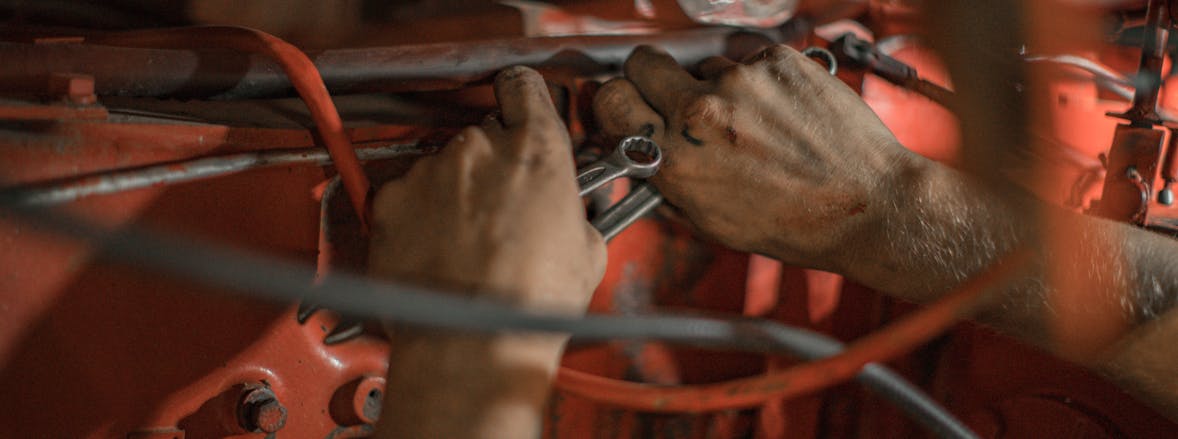Once your salvage vehicle has been repaired, you'll probably wonder what other steps are needed to make your salvage road ready. Before you can take your salvage to the open road, it needs to be inspected by a certified mechanic. Salvage inspections are inspections performed on vehicles that have been deemed salvaged by an insurance company or other entity. These inspections are important because they ensure that the vehicle is safe to be back on the road and is in compliance with state laws and regulations.
In most states, you will need to show either proof of the original damage to the vehicle or the insurance adjuster’s appraisal report, as well as proof that the repairs were done. This may include receipts for replacement parts or photographic evidence. In this comprehensive guide, we will discuss everything you need to know about salvage inspections, including what they are, when they are required, and how to prepare for one.
What is a salvage inspection?
A salvage inspection is a comprehensive examination of a vehicle that has been declared a total loss by an insurance company or other entity. This inspection is designed to determine the extent of the damage to the vehicle, assess the repairs that have been made, and ensure that the vehicle is safe to be back on the road.
When is a salvage inspection required?
A salvage inspection is required in most states when your commercial vehicle has been deemed a total loss by an insurance company or other entity. The purpose of the salvage inspection is to verify that the heavy-duty salvage has been repaired to a safe and roadworthy condition. In some cases, salvage inspections may also be required when your commercial salvage has been previously salvaged and is being sold or transferred to a new owner.
How do you prepare for a salvage inspection?
As you’re preparing for a salvage inspection, there are several things you should do to ensure that the inspection goes smoothly. First, gather all documentation related to the repairs that have been made to the vehicle, including receipts, invoices, and work orders. This documentation should show that the repairs were made by a qualified mechanic and that they were completed in accordance with state laws and regulations. This is an essential part of salvage inspection, as inspectors can’t begin the inspection process without having the proper documentation first.
Next, make sure that your salvage find is clean and free of debris. The inspector will need to inspect every part of your commercial salvage, so it's important to ensure all areas are accessible and visible. Although it’s not usually a requirement to clean the vehicle, it is recommended because it makes the process easier for your inspector to do their job.
Finally, make sure all of the vehicle's systems are functioning properly. This includes the brakes, steering, suspension, and electrical systems. If there are any issues with these systems, they should be repaired before the inspection. If there are any damaged or missing parts, it's important to replace them before the inspection. If not, you may fail your inspection, delaying your ability to get your salvage on the road.
What happens during a salvage inspection?
During a salvage inspection, the inspector will examine every part of the salvage to ensure that it meets state safety and emissions standards. The inspector will also verify that all repairs were completed in accordance with state laws and regulations. This may include a physical examination of the salvage vehicle, as well as a review of documentation related to the repairs that have been made.
If the vehicle passes the salvage inspection, the inspector will issue a salvage certificate or rebuilt title. This certificate or title will allow the vehicle to be registered and driven on public roads. If the vehicle does not pass the inspection, the owner will be required to make additional repairs and have the vehicle inspected again.
In conclusion, salvage inspections are an important part of ensuring that salvage vehicles are safe to return to the road. If you are preparing for a salvage inspection, it's important to gather all documentation related to the repairs that have been made, make sure that the vehicle is clean and free of debris, and ensure that all systems are functioning properly. During the inspection, the inspector will examine every part of the vehicle to ensure it meets state safety and emissions standards. If the vehicle passes the inspection, the owner will be issued a salvage certificate or rebuilt title.
Salvage Inspection | Heavy Salvage
Heavy Salvage offers the industry’s most trusted system of buying and selling commercial salvage. We specialize in connecting verified buyers to certified sellers of wrecked or salvaged semi-trucks, trailers, equipment, or other heavy-duty specialty vehicles with insurance companies and certified sellers. Check out hundreds of certified salvages today.

